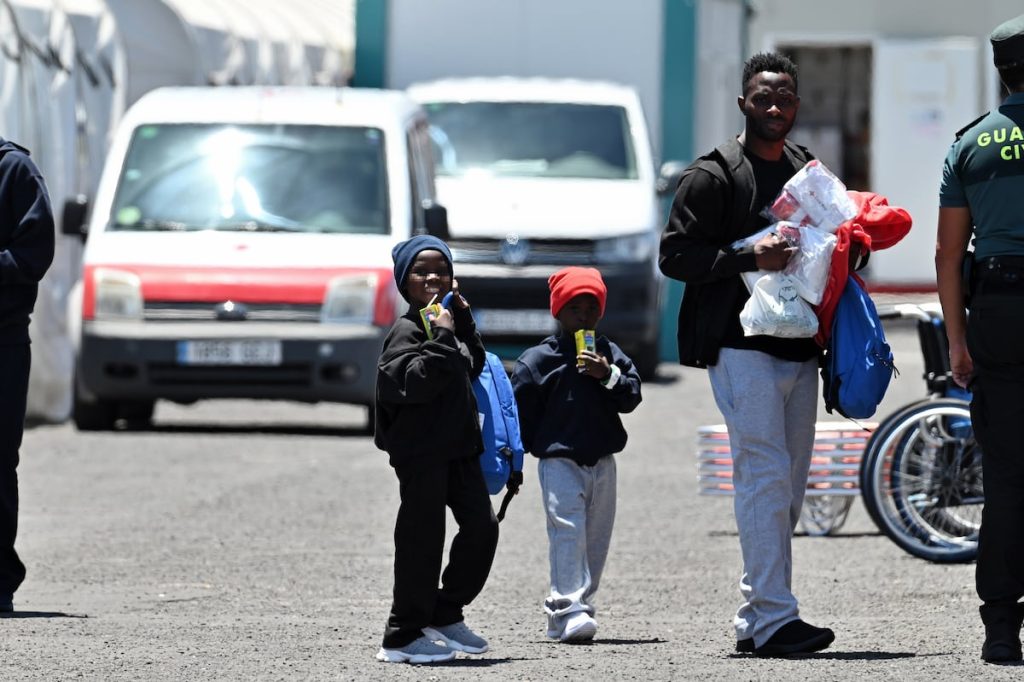The Government of the Canary Islands has announced plans to set up tents to accommodate migrant minors at ports on the islands of Lanzarote, El Hierro, Tenerife, and Fuerteventura, due to the lack of sufficient buildings to house them. This decision comes in response to an expected increase in migrant arrivals in the coming months, with projections indicating a need to accommodate a total of 16,000 children. The announcement was made by the Minister of Social Welfare, Candelaria Delgado, following a meeting of the Canarian Immigration Forum, which includes representatives from the Government, central government, councils, NGOs, and others. The President of the Canary Islands, Fernando Clavijo, emphasized the importance of being prepared for a potential surge in migration, in order to respond quickly and efficiently to the situation.
This announcement follows the rejection by the Congress of a proposed reform to the immigration law that would have allowed for the mandatory transfer of unaccompanied migrant minors, as well as La Moncloa’s refusal to approve this reform through decree law. In response, the Canary Islands will establish a crisis committee to address urgent migration issues. The Government will continue to work towards obtaining approval for a decree law in August to address the migration crisis in the islands, with the involvement of all autonomous communities in finding a solution. Despite the rejection of the proposed law by the political party to which the Government belongs, efforts are being made to reach an agreement that would allow for the transfer of unaccompanied minors to other regions.
The Minister of Social Welfare has requested information from organizations that support unaccompanied minors in order to assess the real capacity for their accommodation in the islands. The current situation is described as complicated and unsustainable, as resources and suitable accommodation are lacking to provide these children with the necessary security and care. Despite regulations not requiring it, the priority remains the protection and well-being of these vulnerable children, who deserve proper attention and support. The challenges posed by the increasing number of arrivals highlight the urgent need for a comprehensive and coordinated response to ensure the safety and well-being of migrant minors in the Canary Islands.
Earlier in July, the Delegate Prosecutor for Immigration in the Canary Islands expressed concerns about the proposed tent installation, citing the vulnerability of unaccompanied minors and Spain’s international obligations under the Convention on the Rights of the Child. The prosecutor emphasized the special protection and care required for these children, who are not only foreign but also traveling alone. The decision to create a crisis committee and establish temporary accommodation in tents reflects the pressing need to address the immediate challenges posed by the influx of migrants, particularly unaccompanied minors, to the Canary Islands. Efforts are being made at the local and national level to find suitable solutions and ensure the protection and well-being of these vulnerable children.
As the situation unfolds, it is crucial for all stakeholders, including government authorities, NGOs, and community organizations, to work together to address the complex challenges posed by the increasing number of migrant minors arriving in the Canary Islands. The need for adequate accommodation, support services, and protection for these vulnerable children must be prioritized to ensure their well-being and safety. The establishment of a crisis committee and the proposal to set up temporary tents are part of a broader strategy to respond effectively to the migration crisis, with a focus on the rights and needs of unaccompanied minors. By recognizing the importance of coordination, collaboration, and proactive measures, the Canary Islands aim to ensure the protection and care of all migrant minors in the region.














